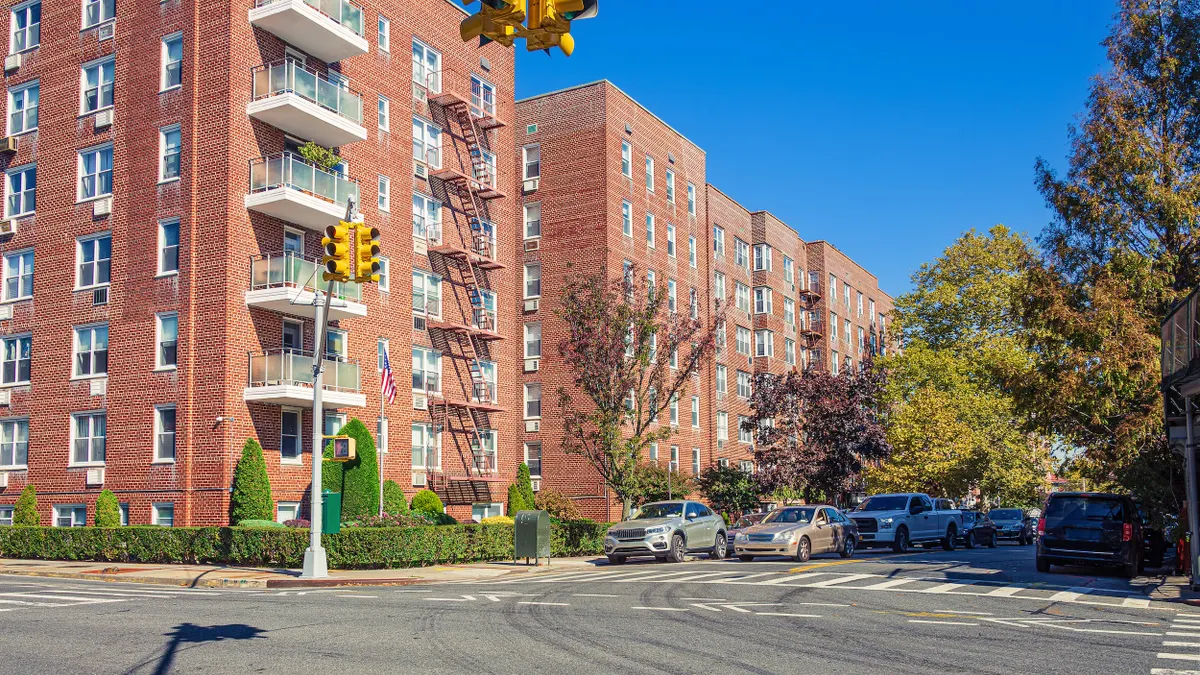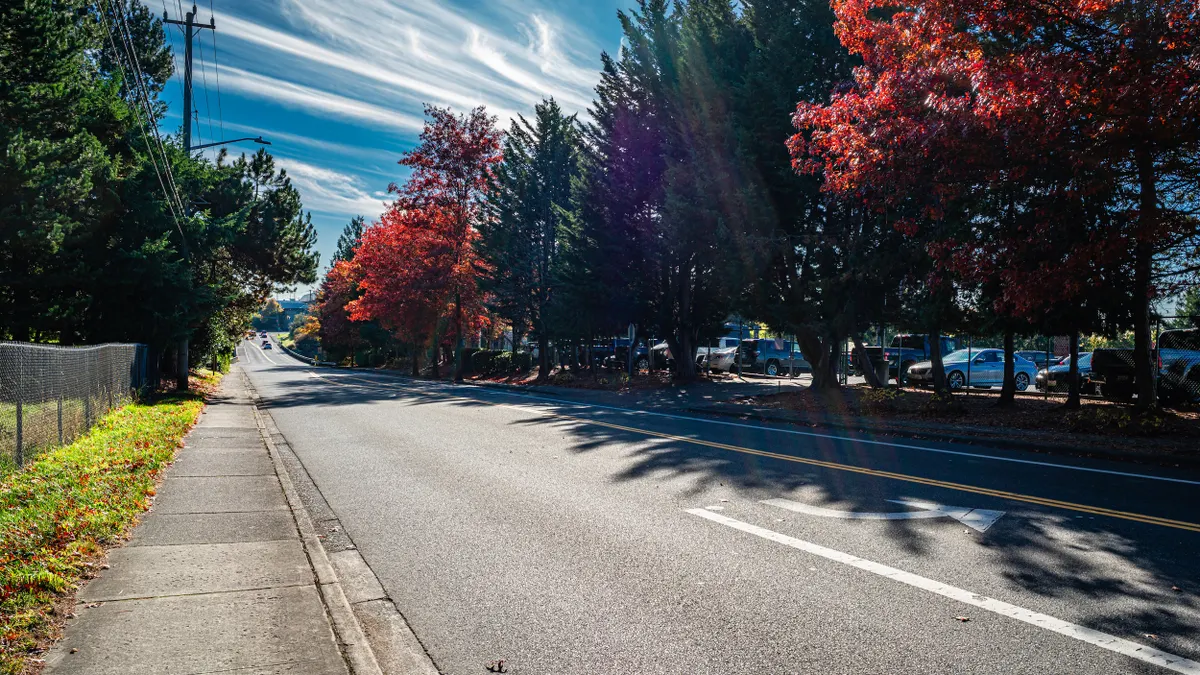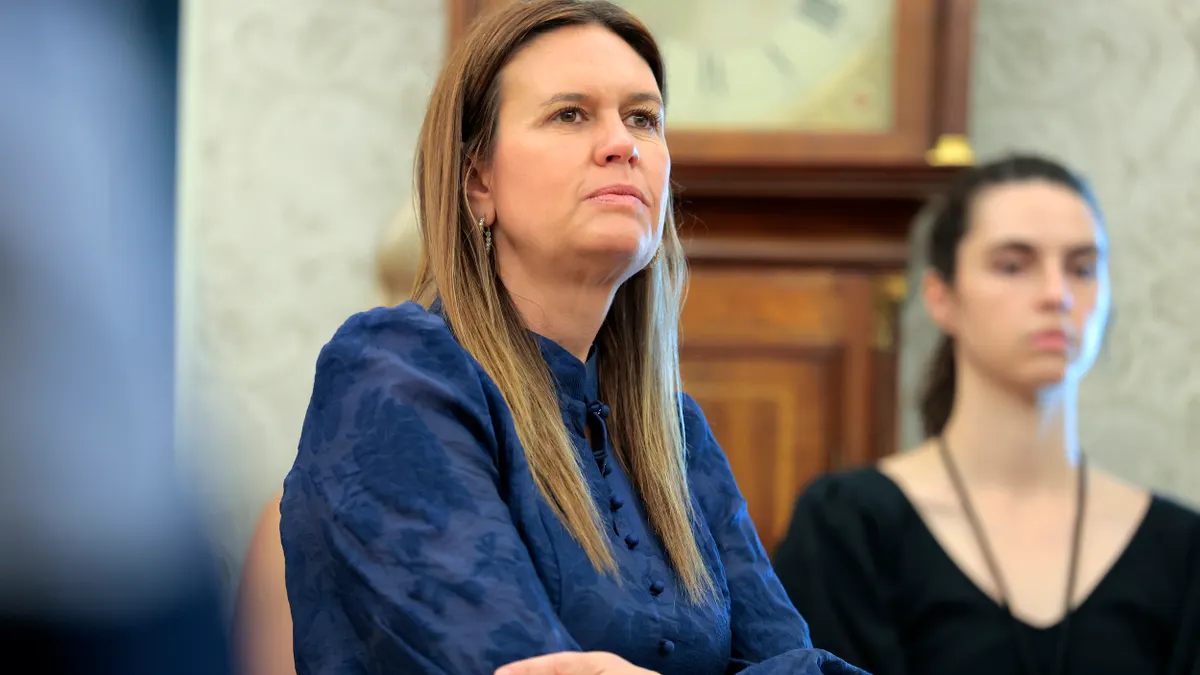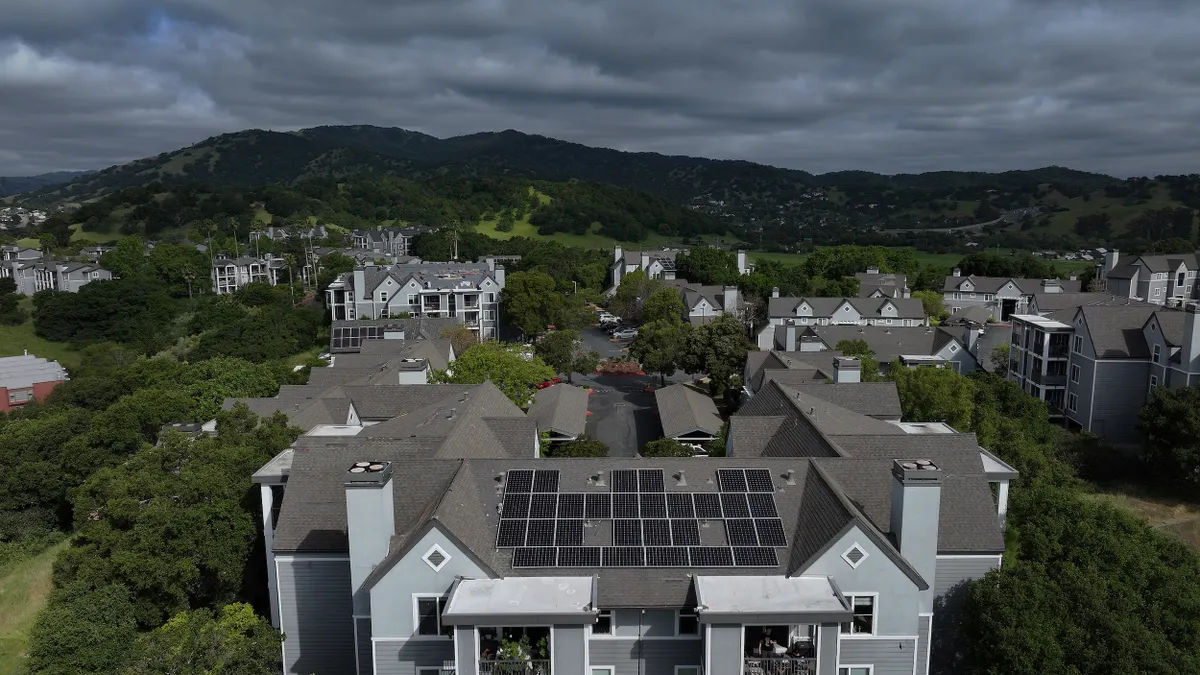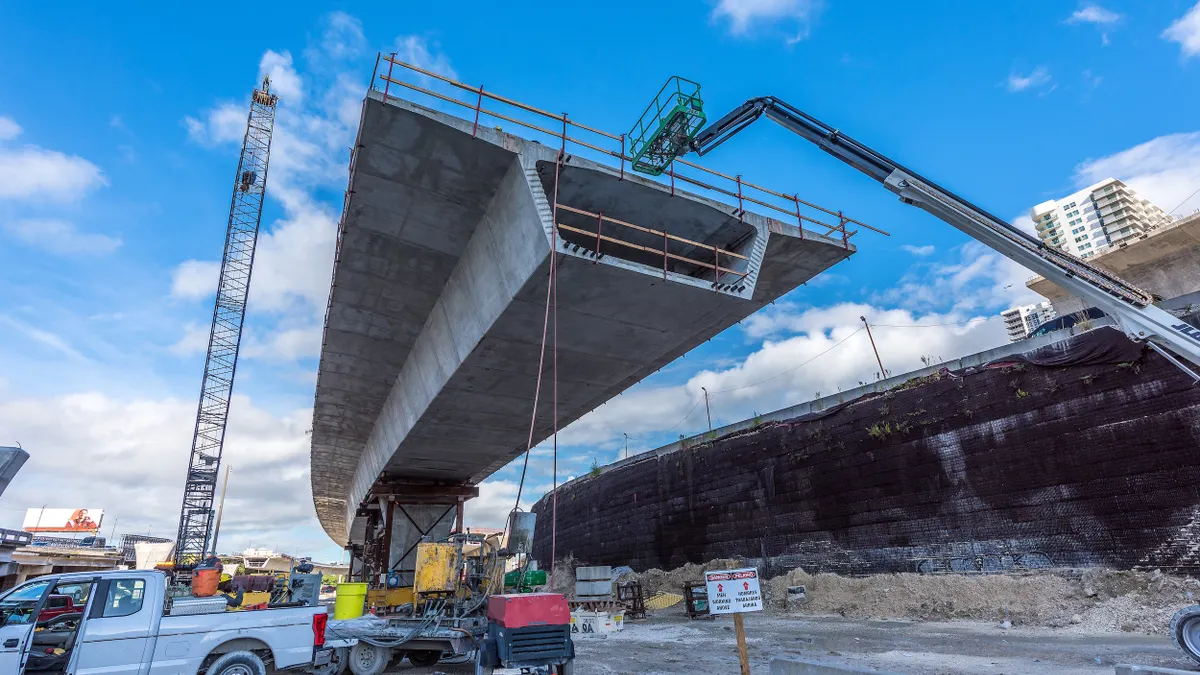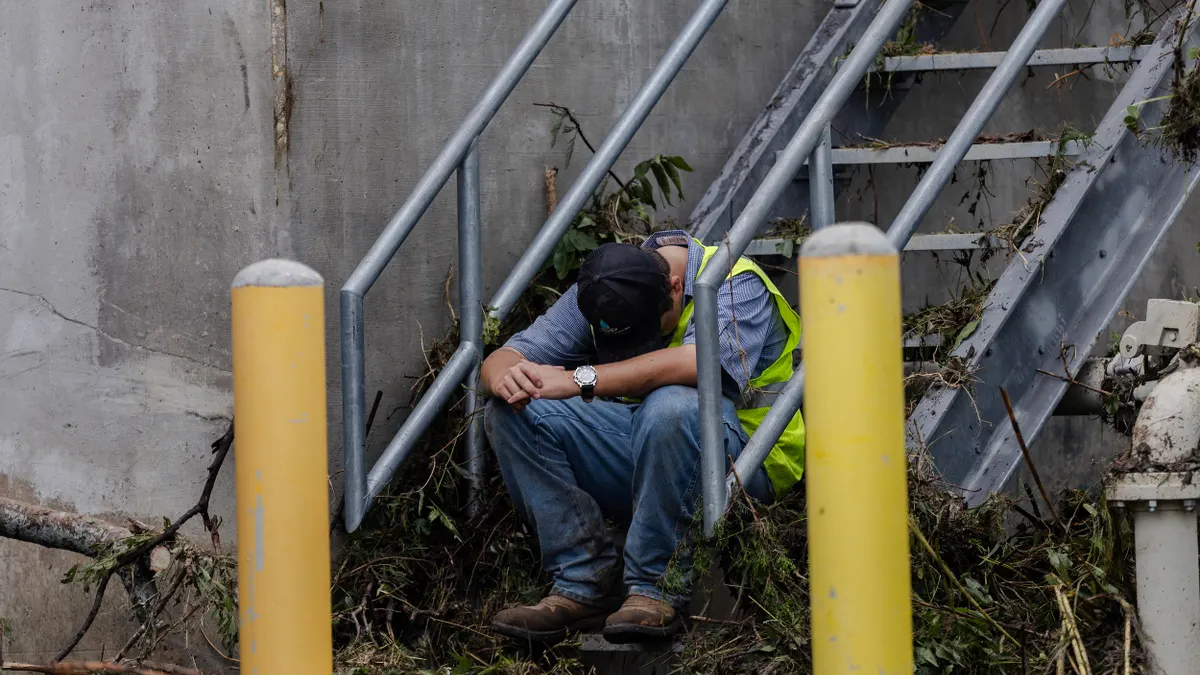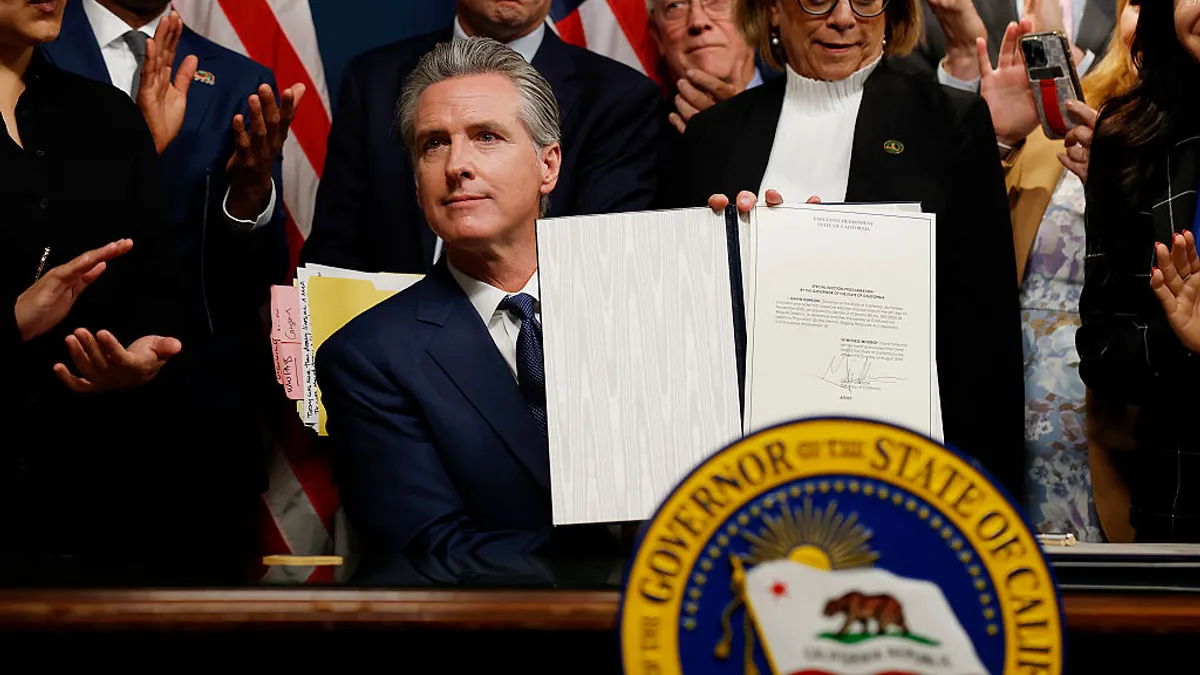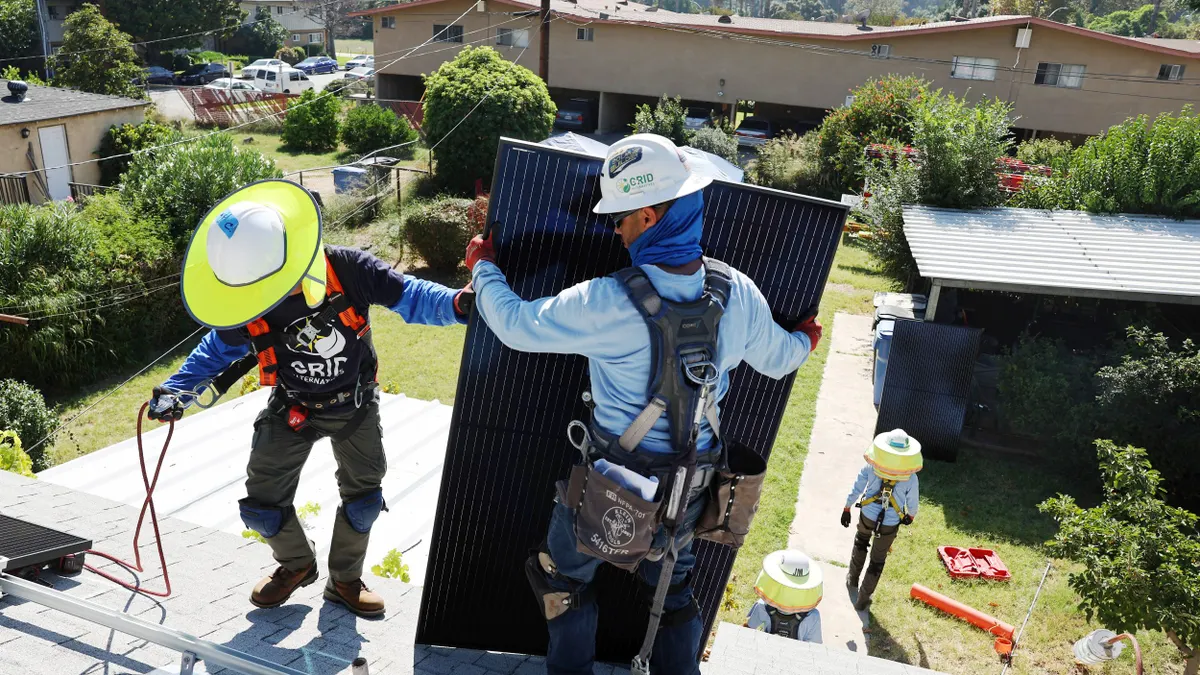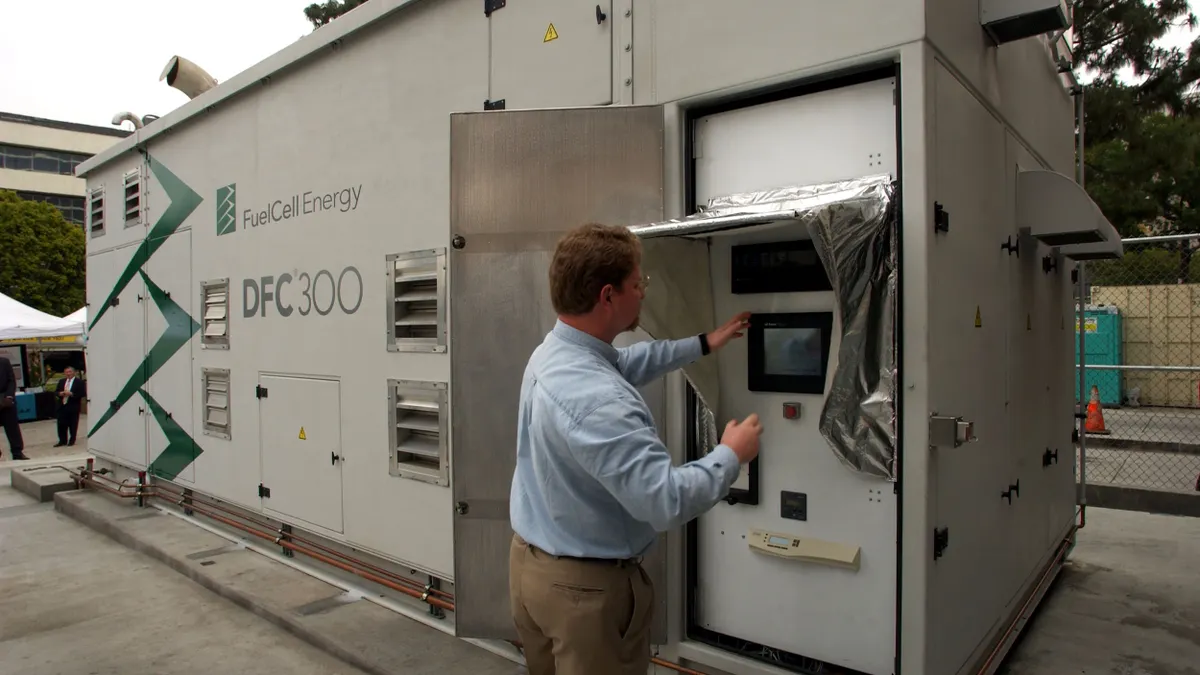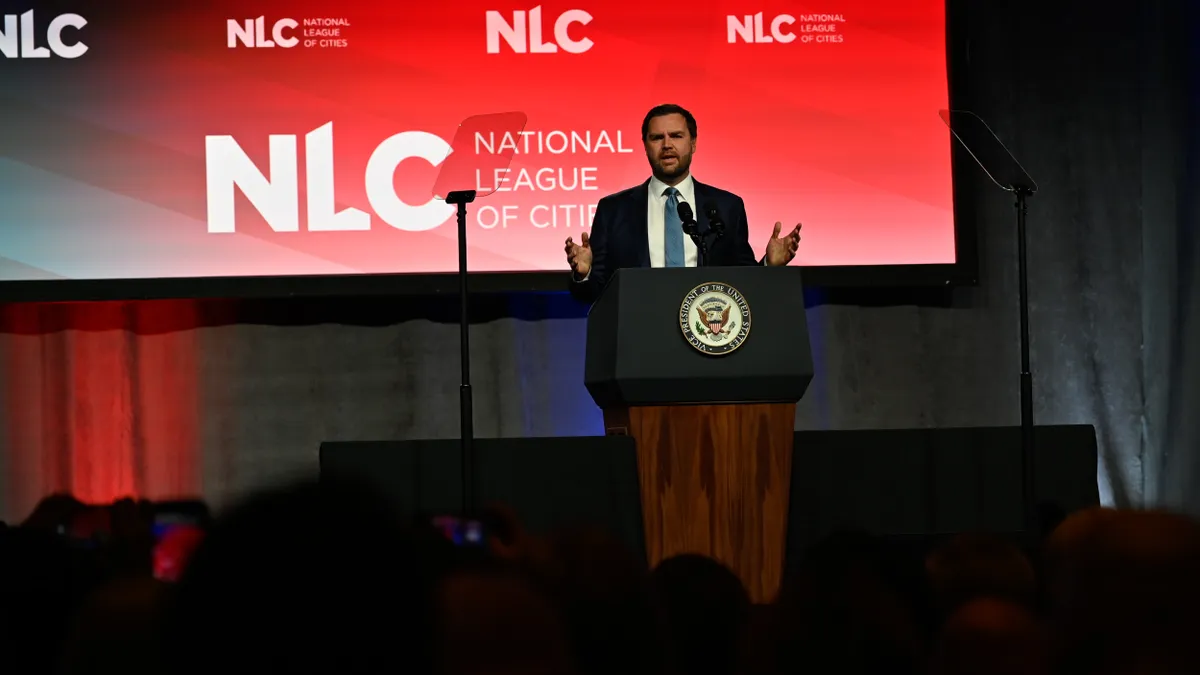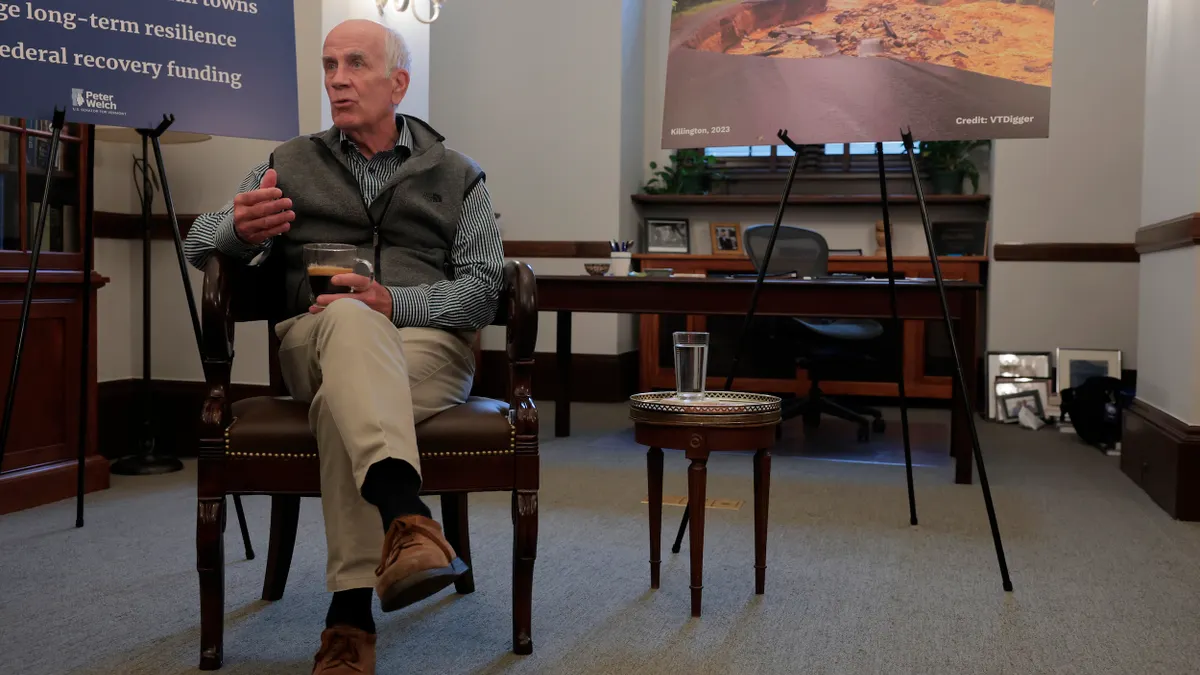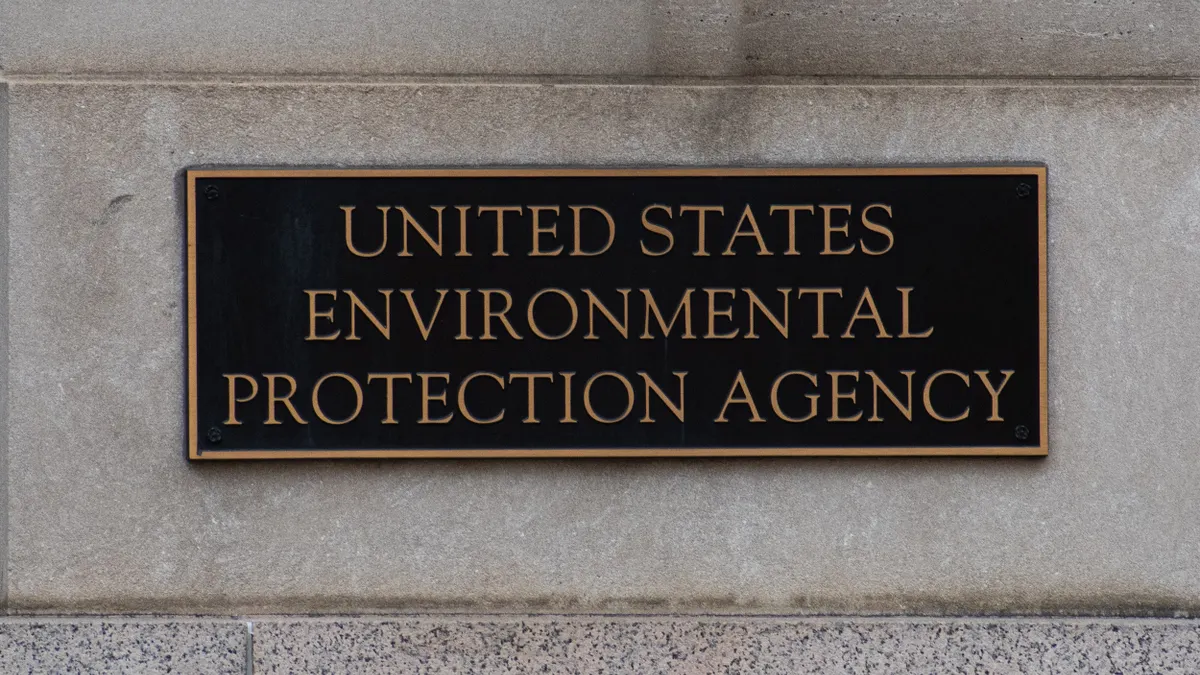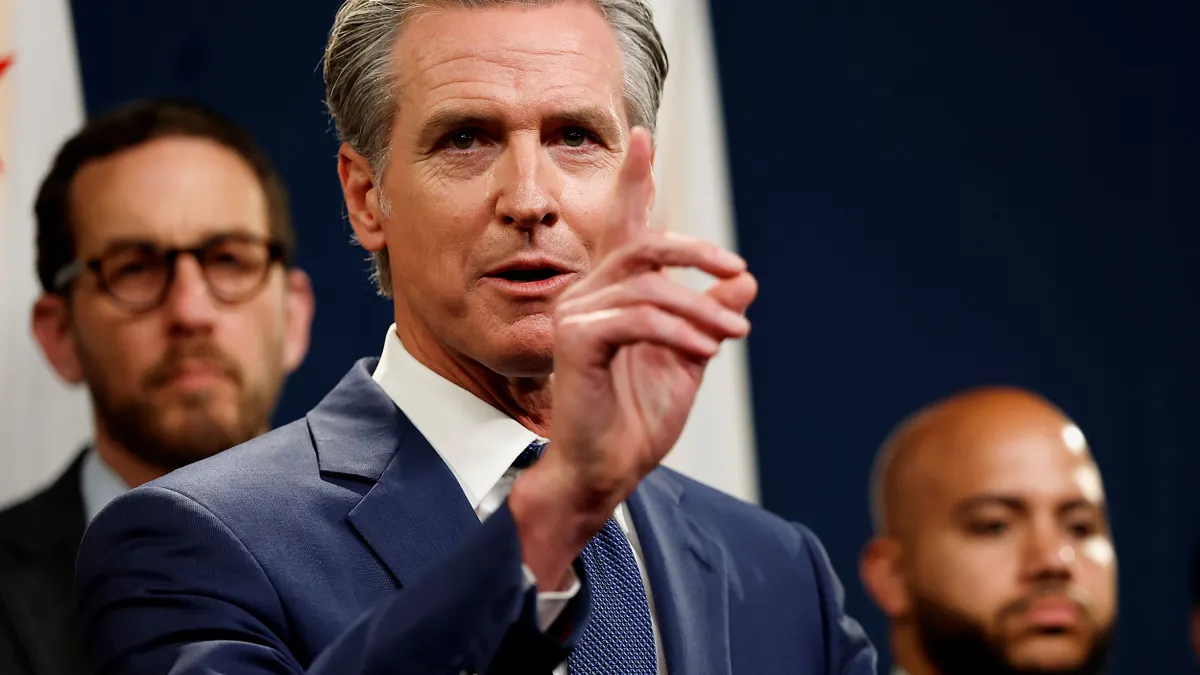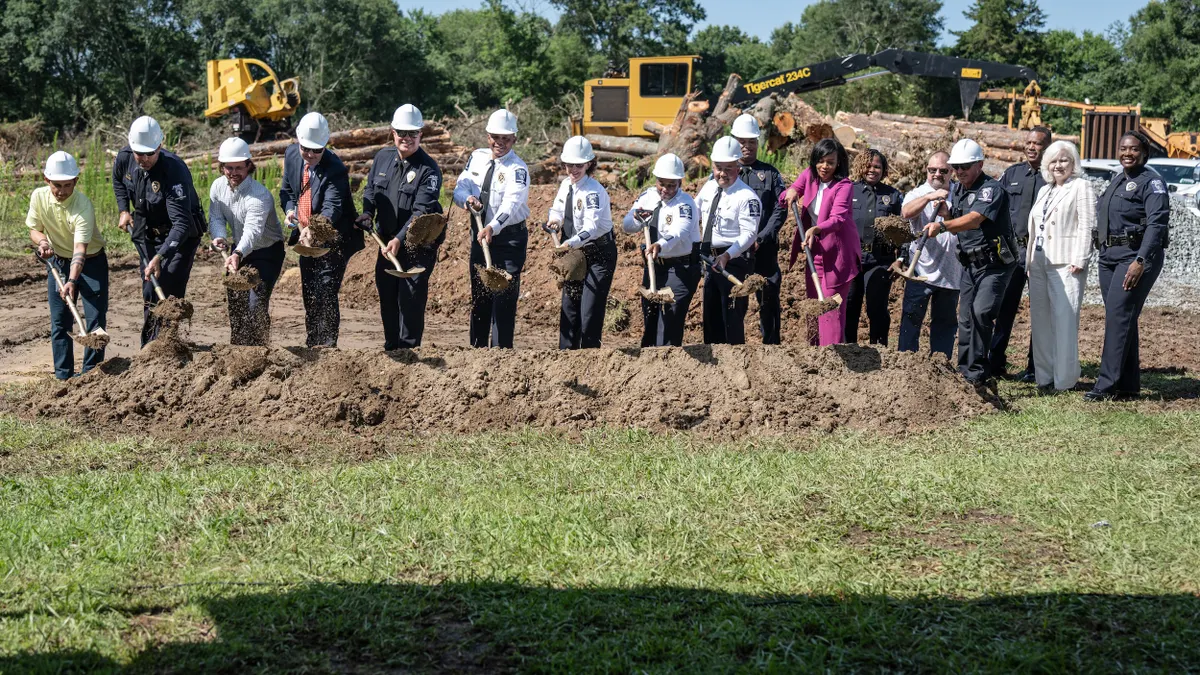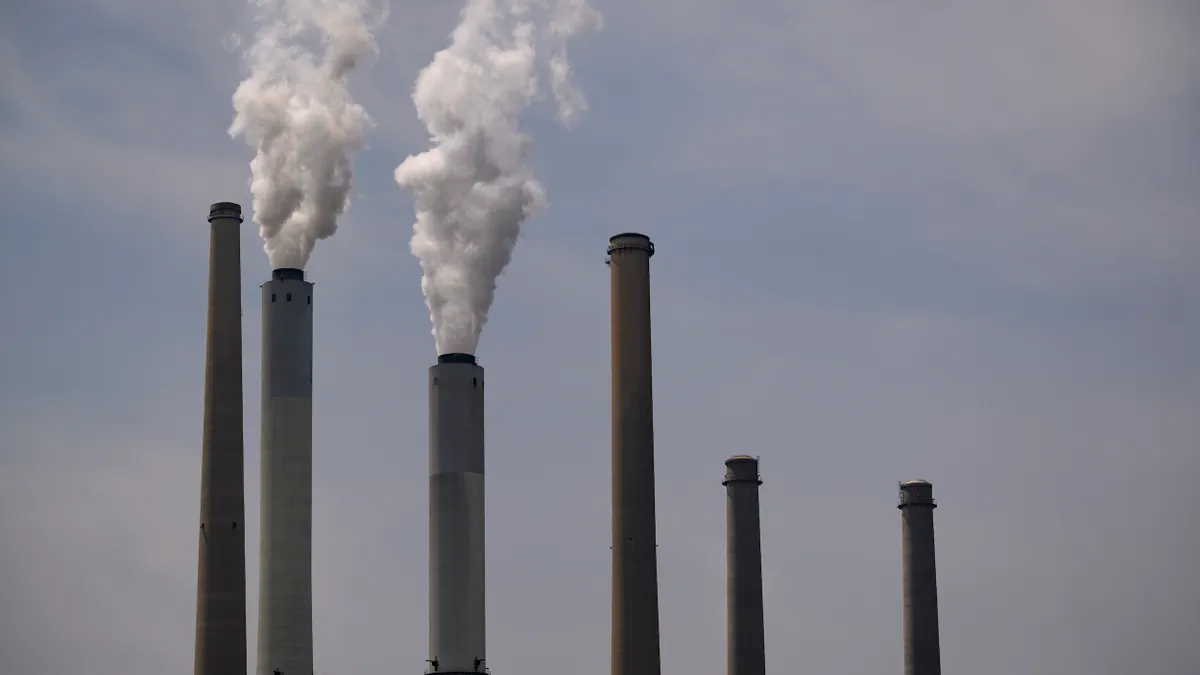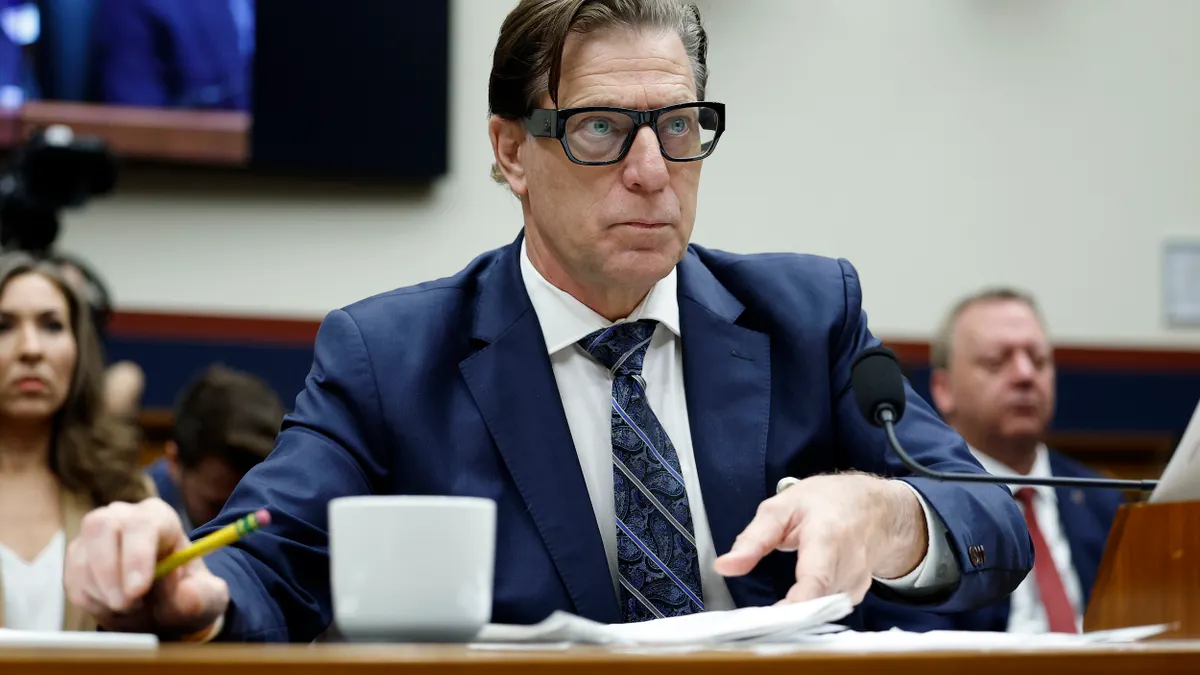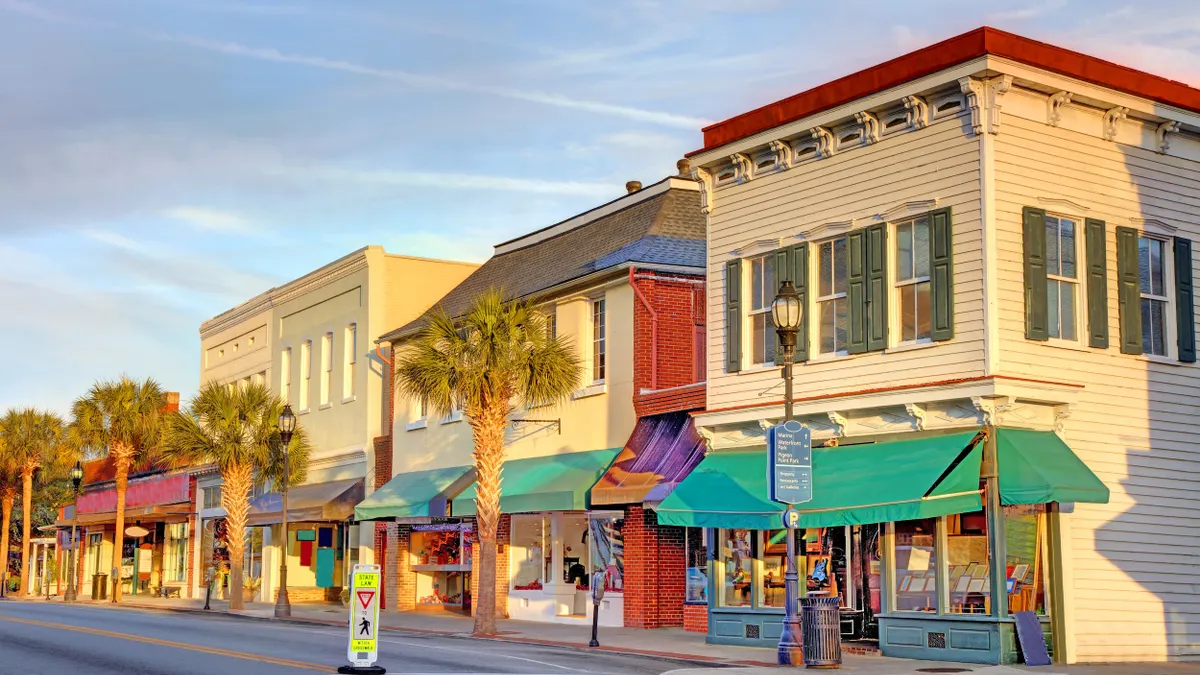Climate & Resilience
-
NYC’s co-ops worry they can’t afford to decarbonize. A new road map offers a path from fear to funding.
Flexible incentives, zoning reform and collaboration could help co-op boards overcome Local Law 97’s financial and regulatory hurdles, the report states.
By Robyn Griggs Lawrence • Oct. 31, 2025 -
5 actions cities can take to keep climate goals on track
Local action is filling the void as the Trump administration pulls back from climate commitments. A new report details how cities can deliver emissions cuts — even without federal support.
By Robyn Griggs Lawrence • Oct. 29, 2025 -
 Explore the Trendline➔
Explore the Trendline➔
 Getty Images
Getty Images Trendline
TrendlineTop 5 stories from Smart Cities Dive
From worsening climate change to a shifting transportation landscape and the housing affordability crisis, cities have their work cut out for them.
By Smart Cities Dive staff -
FEMA delays $11B in reimbursements as states brace for tighter disaster budgets
The agency’s shifting of COVID-related payments into the next fiscal year highlights mounting fiscal pressure on its Disaster Relief Fund and growing uncertainty for states counting on federal aid, the National Association of Counties says.
By Robyn Griggs Lawrence • Oct. 28, 2025 -
States sue EPA over canceled Solar for All grants
In the third lawsuit filed about the grants this month, 22 states and the District of Columbia contend the agency illegally revoked $7 billion in clean energy funds awarded to local governments.
By Robyn Griggs Lawrence • Oct. 17, 2025 -
Cities must act now to secure remaining IIJA funds: NLC
Local governments should “maximize this moment” to strengthen resilience and climate readiness before the Infrastructure Investment and Jobs Act expires, a National League of Cities legislative director said.
By Robyn Griggs Lawrence • Oct. 15, 2025 -
Harris County, Texas, sues EPA over canceled Solar for All funds
County officials say the loss of $54 million in clean energy grants jeopardizes staffing, planning and partnerships built around the program, forcing major adjustments to local operations and budgets.
By Robyn Griggs Lawrence • Oct. 14, 2025 -
5 things keeping emergency managers up at night
Emergency managers are stretched thin as climate disasters and cyberthreats grow. Chronic underfunding and mission creep have left the nation’s front line unprepared, a Deloitte-NEMA study says.
By Robyn Griggs Lawrence • Oct. 8, 2025 -
Newsom orders statewide coordination on climate disaster risk
California agencies will jointly develop tools to help local governments and utilities withstand economic losses and insurance disruptions caused by worsening wildfires and other disasters.
By Zoya Mirza • Oct. 8, 2025 -
Lawsuit challenges EPA rollback of solar program serving low-income communities
Community and labor groups argue the EPA’s termination of the $7 billion Solar for All program strips local governments of critical clean energy funding.
By Diana DiGangi • Oct. 7, 2025 -
Communities brace for fallout as DOE terminates nearly $7.6B in clean energy project funding
Cuts to 223 projects across 16 states will mean job losses, higher energy costs and weaker grid reliability, experts and state agencies warn.
By Robyn Griggs Lawrence • Oct. 3, 2025 -
DOE cancels $7.6B in clean energy funding, hitting projects in 16 states
DOE officials say the cancellations target projects that were rushed through with weak documentation, while critics argue the move is political and will drive up costs for cities and consumers.
By Robert Walton • Oct. 2, 2025 -
Top smart city conferences in 2026
Technology, housing, climate action, transportation, public safety and more take center stage at events for local government leaders in 2026.
By Smart Cities Dive Staff • Oct. 1, 2025 -
5 steps to disaster-proof your city as FEMA pulls back
FEMA is stretched thin, a GAO report warns. Its author offers advice for local leaders to respond strategically and build resilience now.
By Robyn Griggs Lawrence • Sept. 30, 2025 -
How NYC is turning ambitious climate goals into results
At NYC Climate Week, the city’s climate office director highlighted tools like FloodNet and the NYC Accelerator as proof the city’s integrated approach to energy, equity and resilience is working.
By Robyn Griggs Lawrence • Sept. 25, 2025 -
Cities and states split on EPA proposal to repeal endangerment finding
On the final day of public comment, mayors and attorneys general submitted opposing letters on the rule that has shaped federal climate policy since 2009.
By Robyn Griggs Lawrence • Sept. 24, 2025 -
5 forces driving building retrofits and how cities can lead the shift
With nearly 1.5 billion square feet of aging stock in sustainability-focused markets, local governments are positioned to accelerate decarbonization, a JLL report finds.
By Robyn Griggs Lawrence • Sept. 23, 2025 -
Newsom signs California energy package into law
The new provisions seek to address rising electricity costs, wildfire mitigation and climate funding. The package includes a blueprint for a regional Western electricity market and requires community air monitoring in select locations.
By Meris Lutz • Sept. 23, 2025 -
All-electric firehouse and net-zero police station help Charlotte, N.C., meet climate goals
The city has invested $36 million to build the facilities, which align emergency response with an ambitious strategic energy initiative.
By Robyn Griggs Lawrence • Sept. 18, 2025 -
Cities can lead the way on resilient cooling, report says
Local officials have the tools to expand access to affordable cooling while boosting grid resilience and economic development, according to the Federation of American Scientists.
By Robyn Griggs Lawrence • Sept. 17, 2025 -
CenterPoint Energy courts Minnesota communities for networked geothermal pilot
The utility is hoping to prove to local governments that such decarbonization efforts can meet residents’ energy needs in a cold-weather climate.
By Brian Martucci • Sept. 16, 2025 -
EPA moves to end greenhouse gas emissions reporting
Gutting the Greenhouse Gas Reporting Program would strip local governments of information they rely on to hold polluters accountable and undermine efforts to protect residents’ health, climate advocates say.
By Robyn Griggs Lawrence • Sept. 15, 2025 -
9 ways the FEMA Act would reform federal disaster response
Cities are rallying behind the Fixing Emergency Management for Americans Act, which they say would cut red tape, accelerate recovery funding and strengthen resilience against future disasters.
By Robyn Griggs Lawrence • Sept. 11, 2025 -
Traffic cameras double as a hurricane-response system in this South Carolina county
By connecting existing cameras to an AI-powered command hub, a hurricane-prone county plans to track evacuation patterns, adjust routes on the fly and strengthen recovery planning.
By Robyn Griggs Lawrence • Sept. 10, 2025 -
Sponsored by TomTom
[Podcast] Key trends in urban mobility transformation
In this podcast series, explore trending topics related to the larger theme of urban mobility transformation challenges and opportunities.
By Smart Cities Dive's studioID • Updated July 10, 2025 -
13 state governors join coalition to promote EVs
The Affordable Clean Cars Coalition said it will push back against the Trump administration's policies of “putting polluters over people.”
By Dan Zukowski • Sept. 8, 2025

